A major surprise unfolded at the 94th Academy Awards (2022) when CODA triumphed over heavyweights like The Power of the Dog, Nightmare Alley, Dune, Belfast, and West Side Story to win the Oscar for Best Picture.
The truth is, I watched CODA less than 48 hours before it won. That afternoon, I had just seen Nightmare Alley and was convinced it was my personal pick for Best Picture—until that evening, when I watched CODA. The moment the credits rolled, Nightmare Alley dropped to second place. Not because it was any less brilliant, but because CODA moved me in a way I hadn’t expected. It left me speechless—and completely convinced.
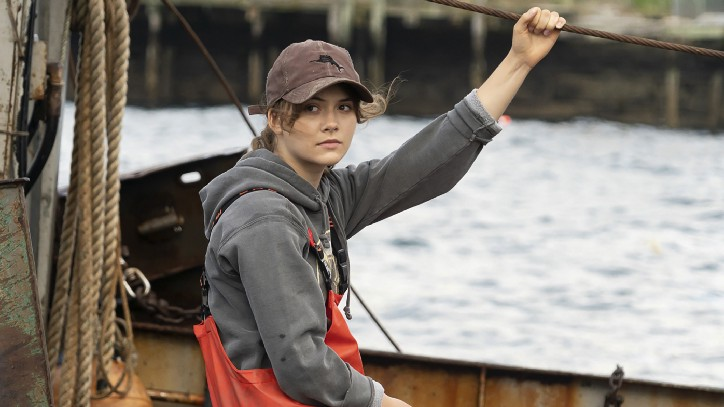
Note: Spoilers ahead
CODA stands for Child of Deaf Adults, and the film tells the story of 17-year-old Ruby Rossi, the only hearing member of a deaf family. What seems like a simple premise unfolds into an emotionally rich, beautifully nuanced exploration of love, sacrifice, and family. Writer-director Sian Heder crafts a story that’s as tender as it is powerful, revealing how love can transcend silence—and that sometimes, silence speaks louder than words.
A Family of Silence
The Rossi family makes a living from fishing. Ruby’s father, mother, and older brother are all deaf, communicating only through sign language. Ruby is the only hearing person in the family—and while that may seem like an advantage, it often feels like a burden.
Since childhood, Ruby has been the family’s link to the outside world. She interprets for her parents during doctor visits, business transactions, and even on the fishing boat, where she listens to radio calls and alerts from harbor authorities. She’s not just a daughter; she’s the glue holding the family together. All this, while navigating bullying, mockery, and isolation from peers who don’t understand her world.
Yet Ruby rarely complains. Despite her teenage years—a time often portrayed in film as rebellious—she remains kind, selfless, and devoted. The first third of the film paints a portrait of a warm, loving, and lively family. The Rossis may be “imperfect” by societal standards, but their home is filled with humor, playfulness, and resilience.
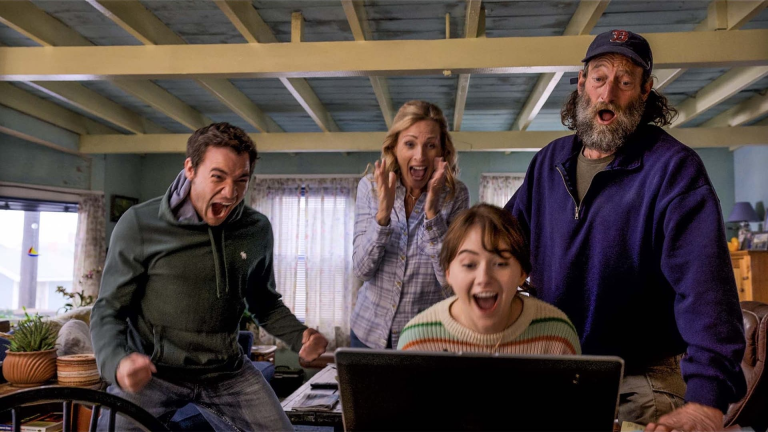
Ruby’s Passion, Their Dilemma
One day, Ruby impulsively joins the school choir—and it turns out, she’s gifted. Her music teacher recognizes her talent and urges her to audition for a prestigious music conservatory.
At first, this seems like a classic coming-of-age narrative: a teenager discovers her passion and chases her dream. But things are far from simple. To pursue music, Ruby must leave her hometown—and her family. Without her, the Rossis lose their interpreter, their ears, their ability to run their business. Her dream becomes a threat to their livelihood.
There’s another heartbreaking twist: her family can’t hear her sing. They don’t understand why it matters so much to her. They can’t feel the emotion in her voice. And what if, they wonder, she’s not actually good?
CODA delicately unpacks these conflicts—between duty and desire, family and freedom. Ruby is torn between a burning passion for music and her responsibility to the people who rely on her most. The tension is deeply personal, yet universally relatable.
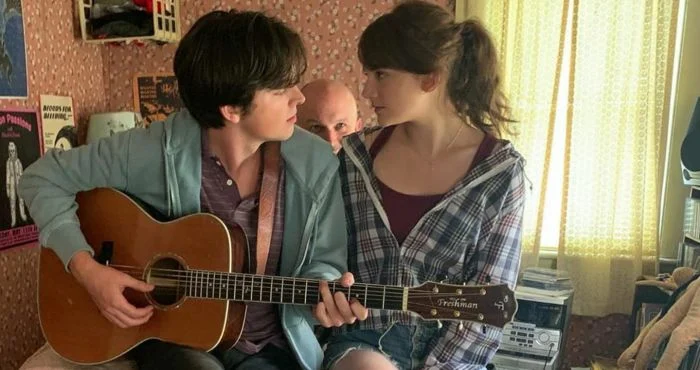
The Turning Point
Things come to a head when the Coast Guard fines Ruby’s father and brother for failing to respond to a radio call—something Ruby would have handled. Their boat is impounded, and they’re unable to work or earn the $1,500 fine. At the same time, Ruby has a golden opportunity to perform in front of a scout from the conservatory. But without her, the Rossis face financial ruin. They can’t even afford to hire another interpreter.
In a heartbreaking decision, Ruby chooses to stay. She sacrifices her dreams for her family—an act of love that defines her character. Her decision stands in stark contrast to her earlier determination to pursue music, proving that her love for her family runs even deeper than her passion for singing.
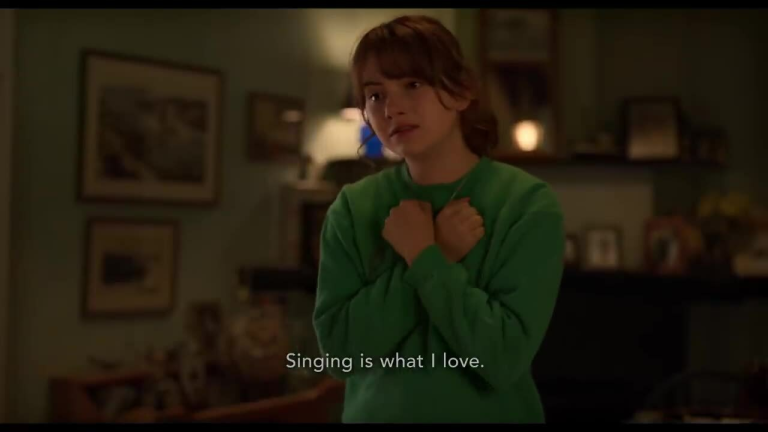
Love That Listens
Her family’s love is no less powerful. They don’t want to hold Ruby back—they simply don’t know how to cope without her. For too long, they’ve depended on her. But Ruby deserves more. She’s young, talented, and her whole life lies ahead of her. To ask her to give it all up would be cruel.
At Ruby’s school performance, her family sits in the audience, unable to hear her voice—but feeling every beat through the reactions of the crowd. The most moving scene in the film comes when her father, watching in silence, looks around and realizes the impact his daughter is having on the room. He sees her passion, her talent—not through sound, but through emotion. The filmmakers emphasize this moment by cutting all sound from the performance, placing us in his perspective. It’s one of the most powerful uses of silence in film I’ve ever seen.
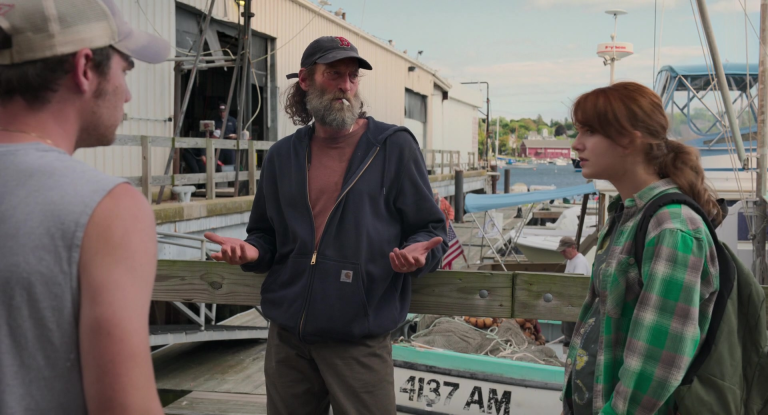
The Decision to Let Go
Afterward, Ruby’s father sells the boat to pay the fine. The family decides to quit fishing and move on. They don’t know what’s next—but they know Ruby can’t be tied down. Their love for her is too great to ask her to stay. In one tender moment, Ruby’s father admits he still misses the sea, saying, “The stars aren’t as beautiful here as they are out on the water.” But he knows the family must forge their own path—so Ruby can follow hers.
The Sound of Silence
At her conservatory audition, Ruby sings—and signs. She performs using both her voice and sign language, allowing her family to finally “hear” her. It’s a stunning moment, where music and silence meet in perfect harmony. A song expressed not through volume, but through gesture, meaning, and love. This is the sound of silence—the most beautiful sound of all.
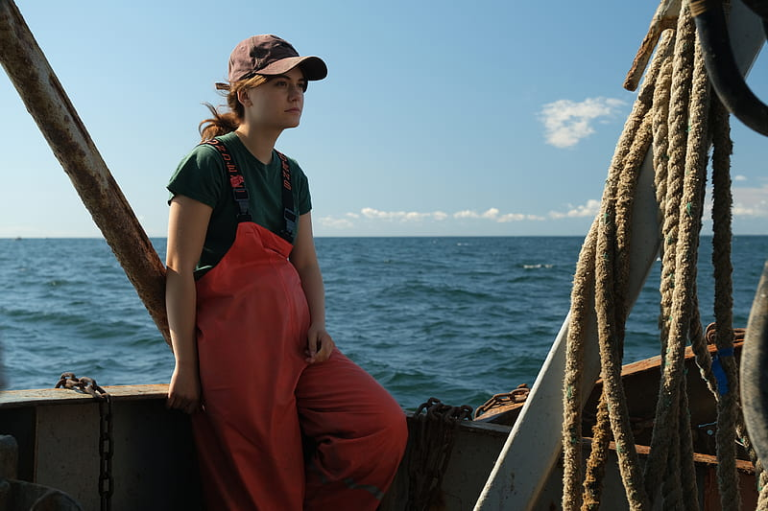
Why CODA Deserved Its Oscars
CODA won Best Picture, Best Adapted Screenplay, and Best Supporting Actor at the 94th Academy Awards—and every award was well-deserved. The film doesn’t rely on A-listers, flashy visuals, or dramatic twists. It thrives on subtlety, sincerity, and soul.
It’s a story about Ruby—but also about her mother, who prayed her daughter would be born hearing; her brother, who envies but supports her; and most of all, her father—Frank Rossi, played by deaf actor Troy Kotsur in an Oscar-winning performance. With his rugged appearance and goofy humor, Frank hides a well of deep, wordless love for his daughter. His performance speaks volumes without ever needing sound.
CODA doesn’t shout. It whispers. And that whisper lingers long after the credits roll. It invites us to slow down, to listen—not with our ears, but with our hearts. It’s a film about hardship, love, sacrifice, and hope. A film carried not by noise, but by the sound of silence.






